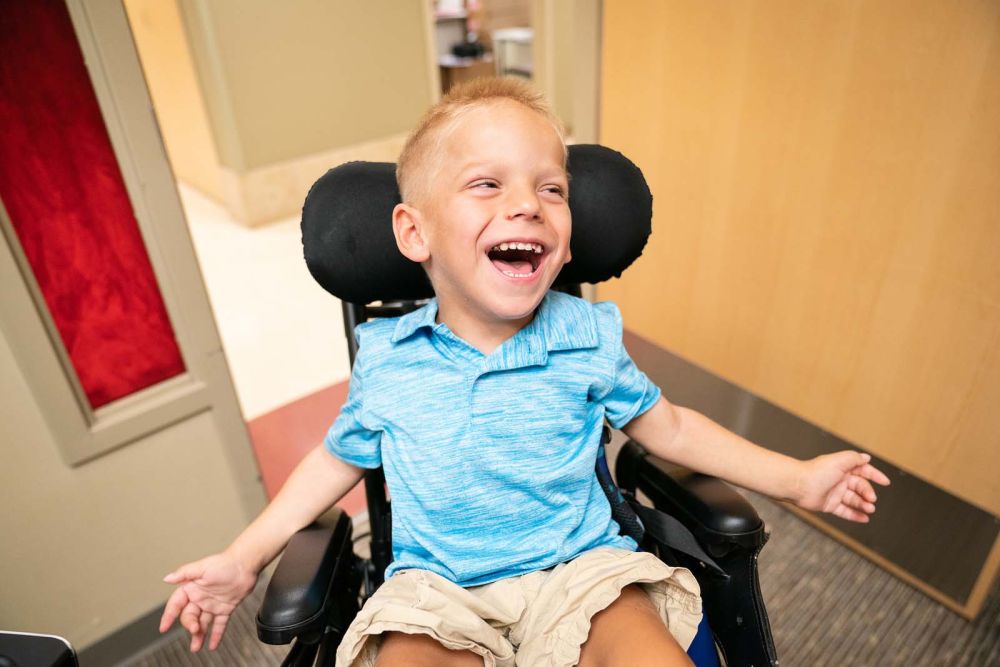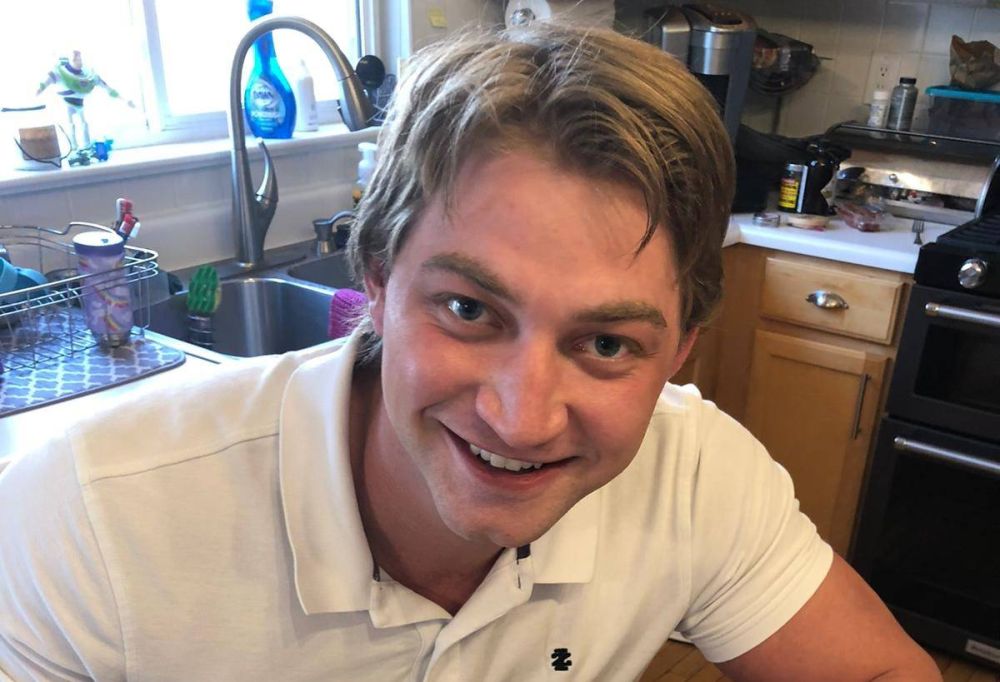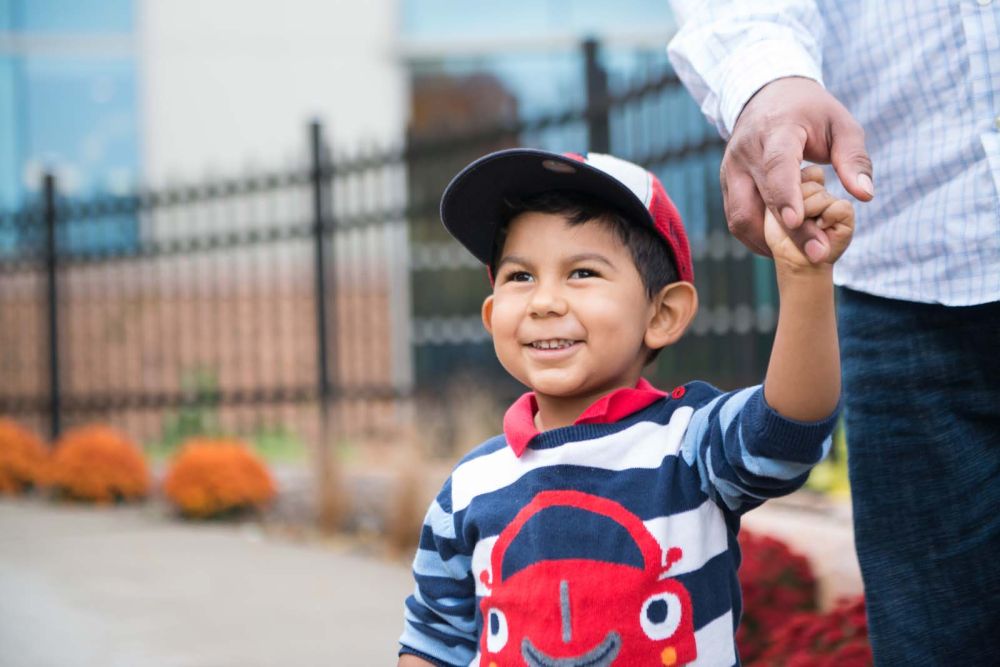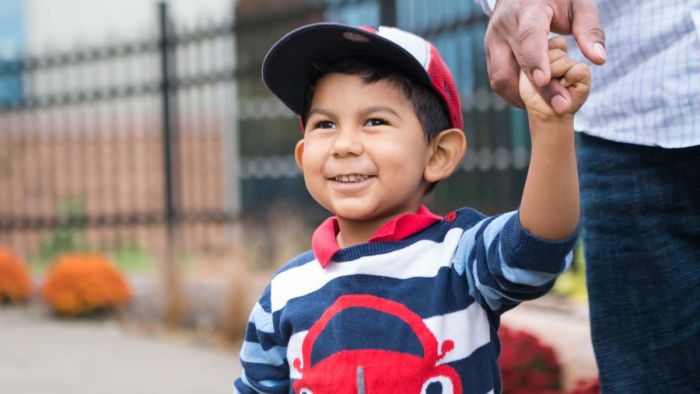Even though cerebral palsy (CP) is one of the most common childhood congenital disorders in the world, it’s often misunderstood. There are unfortunately myriad myths and false information about the condition. These myths can place undue stress on families as they begin to navigate a CP diagnosis.
The highly trained cerebral palsy specialists at Gillette Children’s dispel common CP myths and further discuss what a CP diagnosis means for a child.
What Does a Cerebral Palsy Diagnosis Mean for a Child?
It’s commonly assumed that if a child is diagnosed with CP that they’ll be limited in what they can do for the rest of their life.
While cerebral palsy is a complex condition that affects children in different ways, many children with CP go on to live typical, healthy lives.
There are five levels in the Gross Motor Function Classification System (GMFCS) to describe the abilities of a person who has CP. Levels 3 through 5 are more involved and can have an impact on a child's life, but it absolutely doesn't mean that a child should put limitations on what they try to achieve.
- A child diagnosed with CP should be encouraged to dream big and establish aspirations that drive them to give their all.
- It’s important for a child who has CP to feel as comfortable as possible with their diagnosis, because they’re capable of achieving great things.
The way children who have CP realize their goals may be different from other children, but fostering their drive and determination through constant encouragement is key to them not being defined by their diagnosis.
Busting Common Cerebral Palsy Myths
- MYTH: If you have a physical disability like cerebral palsy, you must have a mental disability.
FACT: This is a false assumption. CP is a wide term for different levels of congenital brain damage, or a damage that occurs on the brain within the first two years of a child’s life.
The symptoms typically vary from person to person. The damages occur in different spots in the brain, which is why some people diagnosed with CP experience both physical and cognitive disabilities, while others have none or a few minor cognitive issues.
- MYTH: Cerebral palsy will get worse as time goes on.
FACT: It’s very common for people to think that cerebral palsy will get worse as a person grows older. However, the truth is that while cerebral palsy is permanent, it doesn’t get worse with age.
As is the case with anyone who ages, someone who has cerebral palsy can experience signs of aging, like their muscles becoming more stiff and other expected issues associated with simply getting older.
- MYTH: Being diagnosed with cerebral palsy means a shorter life expectancy.
FACT: Most children diagnosed with CP live long, happy lives. Their care may involve more visits to the doctor and perhaps require therapy or medications, but none of these factors necessarily mean a shortened life expectancy.
Instead, someone diagnosed with CP needs to properly manage their personal health to achieve a longer life span. But the reality is that children who have CP have been known to live a near-typical life span.
- MYTH: Cerebral palsy is a hereditary disorder.
FACT: While experts are still unsure whether or not and to what degree genetic influences play a role in the development of CP, there is no specific genetic disorder that is known to be responsible for the condition.
This means that CP is not considered to be hereditary. A parent who has CP won’t necessarily have a child with the condition. Moreover, a parent who has had one child diagnosed with CP won’t necessarily have another child with the condition.
The Cerebral Palsy Journeys of Kids at Gillette Children’s
If you’re new to the Gillette Children's family, we want you to know there is a large community of other Gillette families that have been where you are. We’ve highlighted a few stories below of kids diagnosed with CP, so you can learn about their experiences and what you can expect.
Harrison’s Story

Harrison is a five-year-old bundle of joy. He and his family come to Gillette regularly and have developed strong relationships with his care team.
Harrison is diagnosed with cerebral palsy, and he lives a full and joyful life. Harrison and his family are active members of their community and are strong advocates for Gillette Children's. His mother is pleased his Gillette team helps Harrison achieve his goals and remind him that he can enjoy an accomplished life.
Matthew’s Story

When Matthew was 2 years old, he was diagnosed with spastic diplegic cerebral palsy, which impacted his leg strength, flexibility, and balance.
In 2005, Matthew had his first surgery that left a two-foot scar on his back and placed him in a six-week rehabilitation stay at Gillette Children’s.
While this wasn’t his last surgery, it did leave him inspired and committed to overcoming any setback and achieving any task he set his mind to. Matthew is now in his 20s and a certified personal trainer.
Mateo’s Story

When Mateo was born, he was diagnosed with a severe case of hypoxic-ischemic encephalopathy (HIE), a brain injury caused by deprivation of oxygen and blood flow to the brain.
After undergoing extensive medical interventions to aid his condition, Mateo’s family was informed that he would have severe cerebral palsy and may never walk, talk, or be able to learn like children without CP.
At 9 months old, Mateo was brought to Gillette Children’s for treatment and his life was forever changed. Today, Mateo is a happy and healthy boy, able to walk, talk, laugh, and learn new things. He has successfully beaten one of the worst seizure problems seen in early childhood and his future is brighter than ever.
Integrated Care for Cerebral Palsy at Gillette Children’s
CP can affect many different areas of life. A child may need help with speech and swallowing. They may also need help with bracing or a wheelchair. That’s why children with CP need integrated care to appropriately address all their needs.
When all our providers combine their expertise, you get amazing results.
Gillette Children’s CP Institute offers comprehensive services for children, teens and adults who have CP, and we’ll help you navigate the services you need.
People diagnosed with CP deserve a lifetime of excellent healthcare — from birth through adulthood — and you’ll find that here. Get more of your questions answered about CP, and check out the resource section at the bottom of our Cerebral Palsy page.
 Home Page
Home Page

